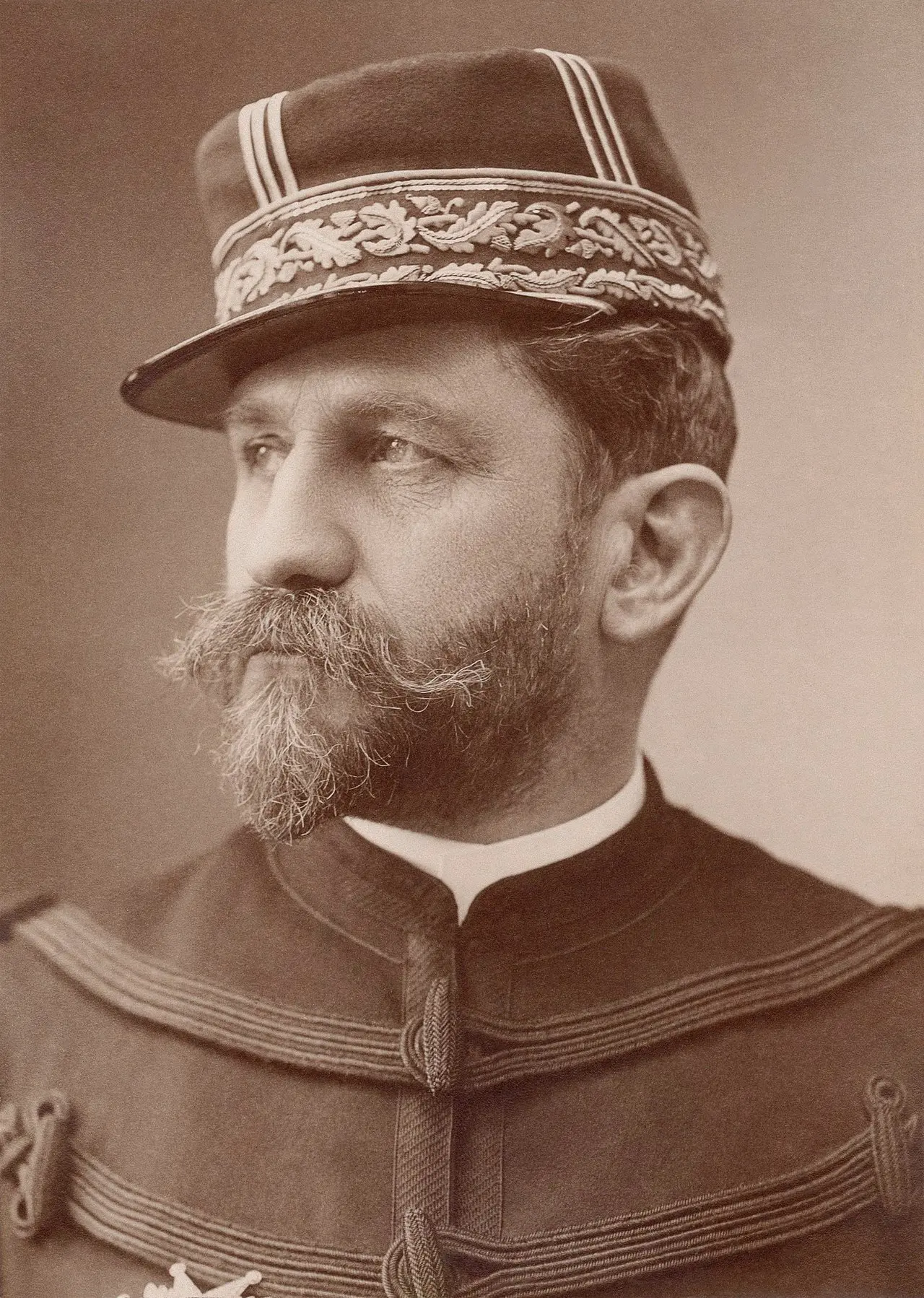General Georges Ernest Boulanger by Atelier Nadar
circa 1882
In 1882, General Georges Ernest Boulanger was at the height of his military and political prominence in France. Born in 1837, Boulanger was a French military officer who became a key figure in the French political scene during the late 19th century. By this time, he was known for his charismatic personality and his fervent nationalist views, which resonated with a significant portion of the French population, especially those who were disillusioned with the French Third Republic.
In 1882, Boulanger was serving as the Minister of War under the government of the French Third Republic. His tenure as minister was marked by his popularity among the public, largely due to his reforms in the military and his efforts to strengthen the French armed forces. He sought to modernize the military and increase its readiness, which earned him the admiration of many patriotic French citizens.
Boulanger's rise to fame, however, was not solely due to his military reforms. His popularity grew through his political and nationalistic rhetoric, which appealed to those who were dissatisfied with the republican government and the aftermath of France’s defeat in the Franco-Prussian War of 1870–1871. The loss of the war had led to a sense of humiliation, and many French citizens longed for a leader who could restore national pride and strength.
Boulanger's political views aligned with those of the political right, and he became associated with a movement that sought to challenge the existing Republican government. He was often seen as a potential leader who could overthrow the republic and establish a more authoritarian regime, possibly even restoring the monarchy. His growing popularity with certain factions of the French public earned him the nickname "The Man on the Horse" or "The General who would save France."
However, by 1882, Boulanger's political aspirations were still in their early stages. While his popularity continued to rise, his rise to power was viewed with suspicion by the French government, which saw him as a threat to the stability of the republic. In the years that followed, Boulanger would become a central figure in the "Boulangist" movement, which sought to promote nationalism, militarism, and anti-republican sentiment.
Despite his early popularity, Boulanger’s political career would ultimately be short-lived. By the mid-1880s, his radical ambitions and his growing tension with the republican establishment led to his downfall. In 1889, after facing charges of plotting a coup, Boulanger fled to Belgium, where he lived in exile until his death in 1891.
In summary, 1882 was a year when General Georges Ernest Boulanger was firmly entrenched in the French political and military landscape, gaining fame as a reformist and nationalist leader. While his popularity would soon make him a controversial figure, it was during this period that he first captured the imagination of many French citizens, who hoped he could restore France's military and political strength in the wake of its earlier defeats.
Contributed by OldPik on January 7, 2024
Image

Log in














No comment yet, be the first to comment...